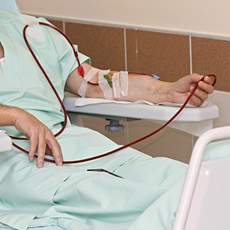
A major clinical trial out of the United Kingdom points a new direction for treating a common form of kidney disease.
Researchers at the University of Bristol’s Academic Renal Unit looked at three different treatment approaches for a kidney problem called membranous nephropathy. The condition causes small blood vessels in the kidney to become inflamed and can lead to kidney failure in almost half of patients. Kidney failure treatments cost $40 billion in the United States in 2008.
The UK research team found that six months of therapy that involved alternating monthly cycles of prednisolone, a corticosteroid, and chlorambucil, an alkylating agent generally used to treat cancer, was the most effective option. In the study of 108 participants, 33 received prednisolone and chlorambucil, 37 received ciclosporin, and 38 had supportive therapy alone. The randomized controlled trial was done in 37 renal units across the UK.
Managing kidney function is a growing concern for long-term care facilities. Membranous nephropathy leads to end-stage renal disease in more than 20% of patients, researchers said. In the U.S., more than 871,000 people were being treated for end-stage renal disease at the end of 2009.
The study, “Immunosuppression for progressive membranous nephropathy,” appeared in The Lancet Jan. 9. It was conducted by the Medical Research Council, Novartis, and the Renal Association and Kidney Research UK.
From the February 01, 2013 Issue of McKnight's Long-Term Care News




